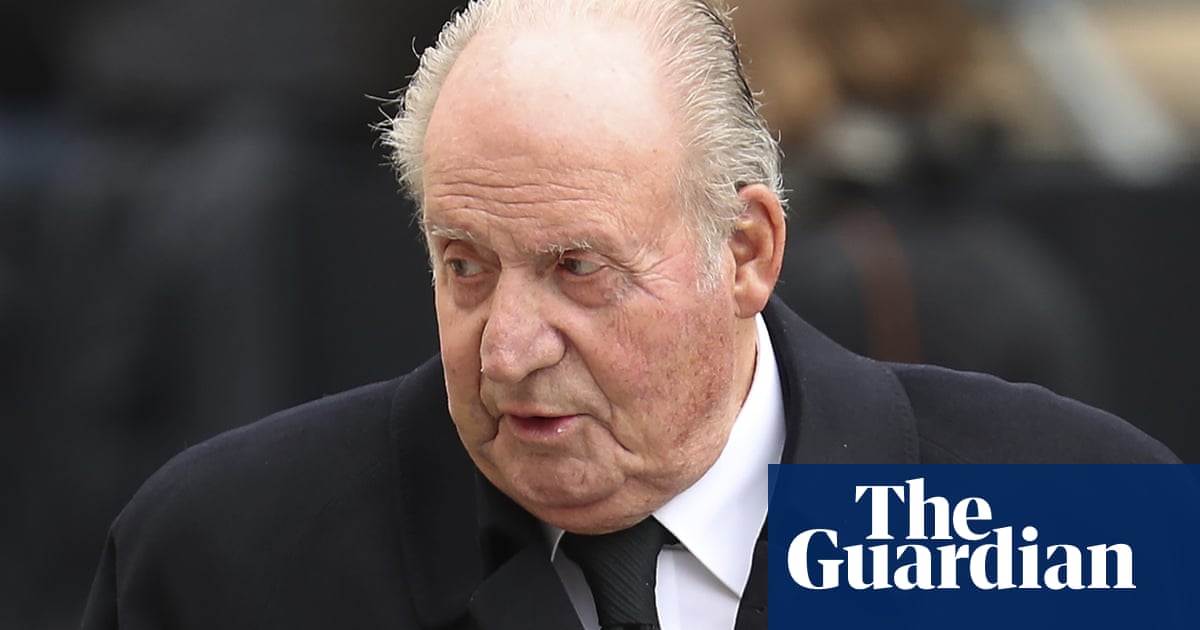
Show caption Spain’s former King Juan Carlos was stripped of his annual stipend in 2020 by his son, King Felipe. Photograph: Francisco Seco/AP Spain Former king Juan Carlos may return to Spain after inquiries dropped Royal left to live in Abu Dhabi in 2020 following allegations over business dealings relating to Saudi Arabia Sam Jones in Madrid @swajones Thu 3 Mar 2022 13.15 GMT Share on Facebook
Share on Twitter
Share via Email
Spain’s self-exiled former king, Juan Carlos, is thought to be considering a return home after prosecutors shelved three separate investigations into his financial affairs, citing insufficient evidence, the statute of limitations, and the monarch’s constitutional immunity.
The 84-year-old left Spain for Abu Dhabi in August 2020 after a series of damaging allegations were made about his business dealings that further dented his already battered reputation and embarrassed his son, King Felipe.
In March 2020, Felipe stripped Juan Carlos of his annual stipend and renounced his own personal inheritance from his father after reports that he was in line to receive millions of euros from a secret offshore fund with ties to Saudi Arabia.
Three months later, Spain’s supreme court launched an investigation into the former king’s role in a deal in which a Spanish consortium landed a €6.7bn (£5.9bn) contract to build a high-speed rail line between the Saudi cities of Medina and Mecca.
On Wednesday, however, the public prosecutor’s office announced that it was dropping all investigations into the former king on various grounds.
It said in a statement: “The public prosecutor wishes to make it clear that, despite the investigation … no criminal action can be taken against His Majesty Juan Carlos de Borbón for the reasons outlined in the decree – basically the lack of incriminating evidence, the statute of limitations, the inviolability of the head of state, and tax regularisation.”
While noting that prosecutors had identified “sums defrauded from the Inland Revenue relating to personal income tax between 2008 and 2012”, it said the possible offences in question had either expired or were covered by inviolability. The statement also pointed out that prosecutors’ efforts had led to the recovery of more than €5m, which Juan Carlos paid to the tax authorities earlier this year.
One of the key lines of inquiry was the nature of the €65m that Saudi Arabia’s late King Abdullah paid into a Swiss bank account to which Juan Carlos had access in 2008. The former king’s lawyers described the sum as a gift or donation, but suspicions had arisen that it was a commission paid to Juan Carlos for his part in the rail deal.
“The investigation has not been able to establish, even indirectly, any link between the aforementioned sum of €64,884,405 and the awarding of the project for the construction of a high-speed rail line in Saudi Arabia, nor, similarly, has it found that the sum was related to any kind of commission,” the statement said.
Even if the payment had been a gift or bribe, it added, the statute of limitations for the offence “has clearly expired”. Similarly, any possible money laundering offences relating to the sum’s subsequent handling would have been covered by the king’s constitutional inviolability, which lapsed only when he stepped down in 2014.
Prosecutors also said they were shelving investigations into Juan Carlos’s possible undeclared use of credit cards linked to accounts not registered to his name, and into offshore accounts held in the tax haven of Jersey.
The former monarch’s lawyer, Javier Sánchez-Junco, said the public prosecutor’s statement had concluded that “there were no circumstances to suggest the existence of any illegal conduct on the part of His Majesty Juan Carlos de Borbón – nor of any conduct that may be liable to criminal reproof”.
Sánchez-Junco said he would travel to see the former king in the coming days to discuss the matter.
“After examining and evaluating the issues next week, I will share any decisions Don Juan Carlos might make at the appropriate time,” he added.
Despite the shelving of the investigations in Spain, Juan Carlos’s legal issues are not over elsewhere.
His former lover, the Danish businesswoman Corinna zu Sayn-Wittgenstein, has brought action against him at the high court in London, claiming he used Spain’s spy agency to target and harass her and her children after their five-year relationship ended.
In a skeleton argument presented to the court in December last year, lawyers for Sayn-Wittgenstein said she was seeking damages for the “great mental pain, alarm, anxiety, distress, loss of wellbeing, humiliation and moral stigma she has suffered”.
The former king’s lawyers have rejected “the allegations made against him, and any alleged wrongdoing by the Spanish state is denied in the strongest of terms”. They have also argued that Juan Carlos would have been covered by sovereign immunity at the time in question. That case continues.
The former monarch, who was long praised for the role he played in returning Spain to democracy after the Franco dictatorship, abdicated eight years ago amid plummeting popularity.
Pictures of the king posing in front of a dead elephant while on safari in Botswana in 2012 did not go down well in a country still devastated after the 2008 economic crisis.








